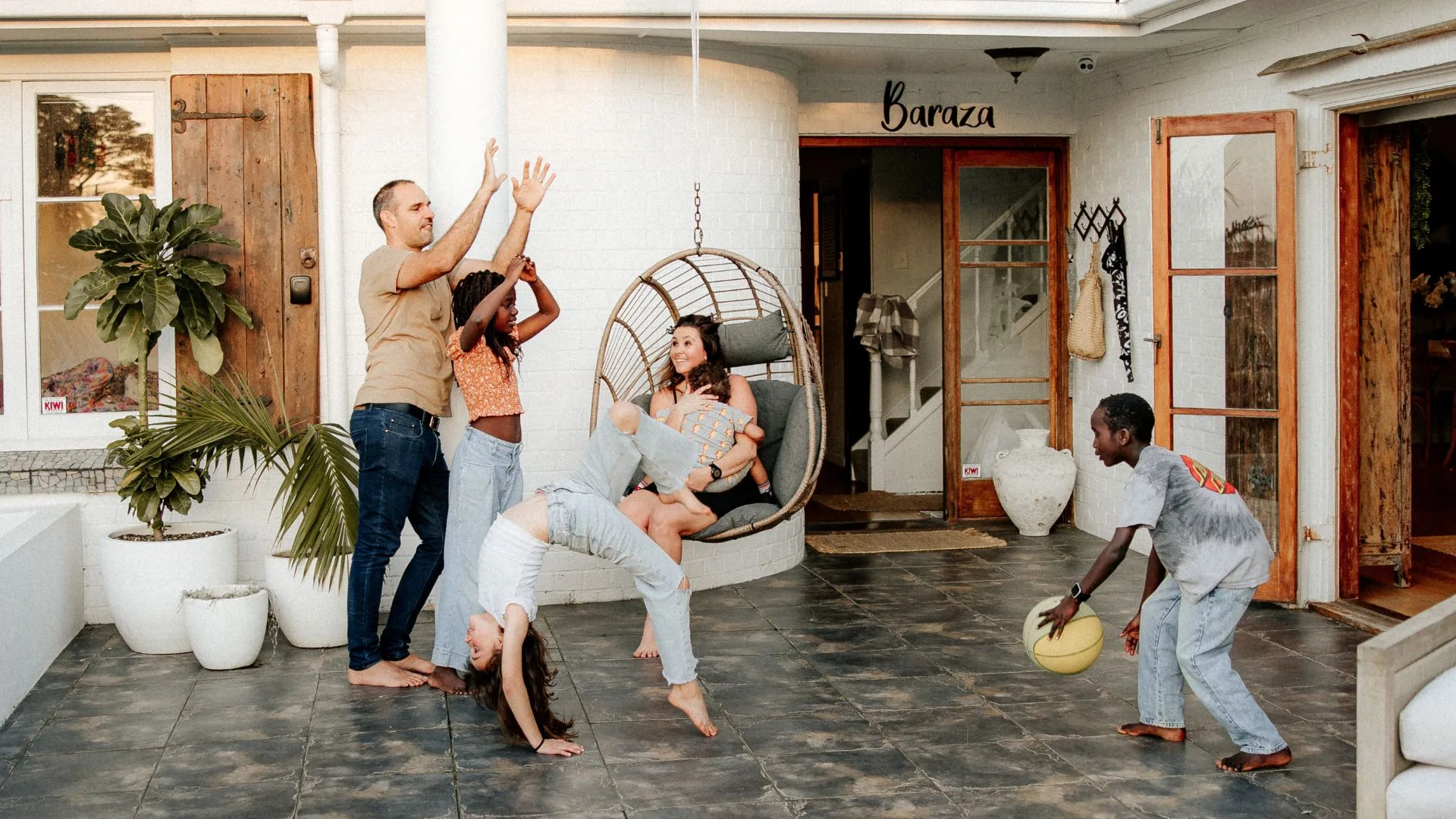Standing just 1.15 metres tall, Ebony Kepa has endured a lifetime of double takes, long stares and probing questions. “The best question is, ‘You’re so cute, can I pick you up?’” laughs Ebony, 23. “I also get, ‘Are you from a fairytale and can I take your photo?’”
Yet despite growing up in the glare of strangers and dealing with the physical challenges of dwarfism, Ebony enjoys her unique perspective on the world. “People presume I’d like to be taller, but I wouldn’t. I love being a little person and surprising people who underestimate me!”
Although 80% of people born with dwarfism have average-sized parents, being little is Ebony’s normal. She belongs to New Zealand’s only family of five little people across three generations. Her grandmother Fay, 72, mum Donna, 47, aunt Debbie, 50, and cousin Sheldon, 25, all stand under 1.3 metres.
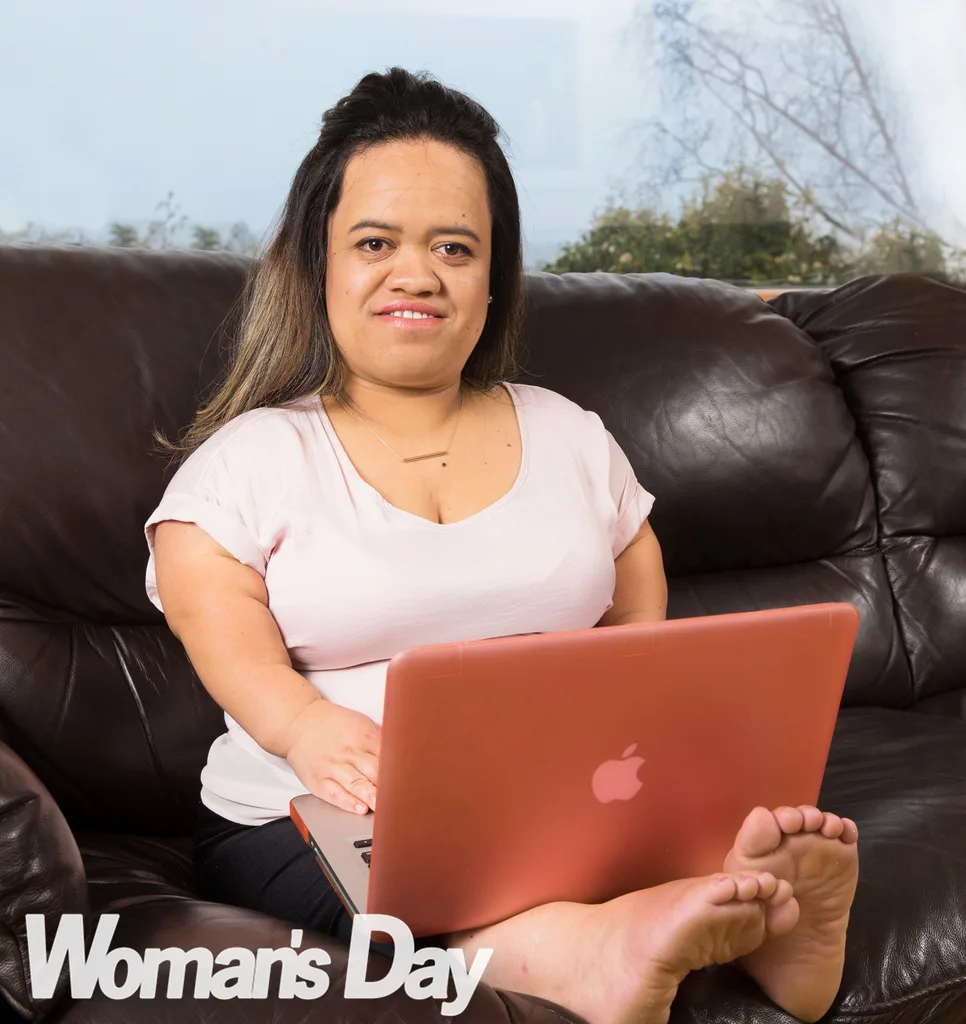
“This is the way God made me and he loves me just the way I am,” says Ebony, who has become a sensation on YouTube.
In the last year, Ebony has become a public face for dwarfism, setting up her own YouTube channel and filming a catchy video of what it’s like to be her. The clip got over 6000 hits and the bubbly Bay of Plenty resident is now planning a follow-up this month to coincide with Little Person New Zealand Awareness Month. Ebony wants to educate people about dwarfism, but admits that some days, she needs to brace herself before leaving the house.
“I get stared at all the time,” she laments. “I have to put my ‘helmet’ on before I go out.” Ebony is encouraging people to walk up to her and say hello. “Don’t drag your children away and tell them not to stare – it creates a climate of shame,” she declares. “Come and talk to understand more about diversity. I’m a normal person – it’s just that everyone’s idea of normal is different.”
Ebony didn’t realise her family was unique until she was eight years old. “When you’re a kid, your mum is just your mum,” she explains. “But I noticed she did little things differently.”
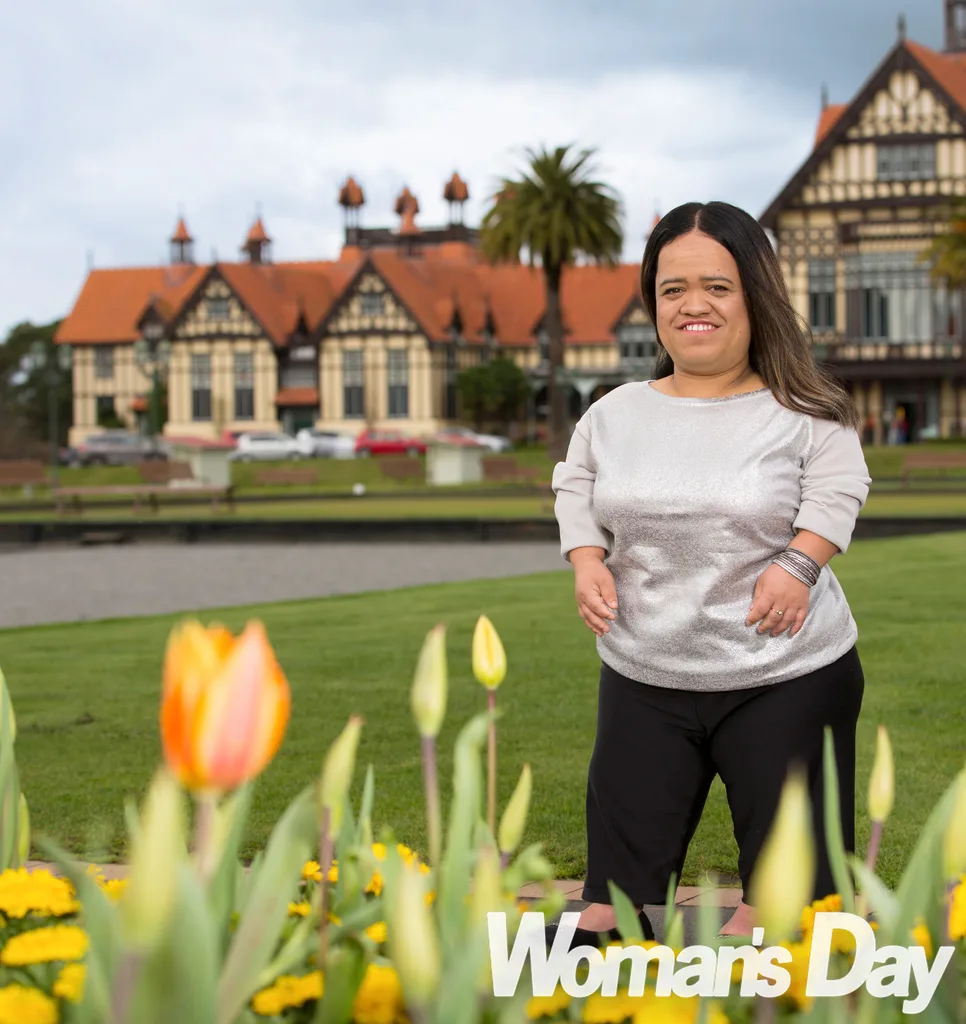
Ebony and her family have achondroplasia, which is the most common form of dwarfism. Their torsos are average-sized, but the limbs are shorter. Smaller fingers, hands, arms and legs can make some everyday tasks challenging.
“We live in a world that’s not built for us, so we have to navigate our own way,” tells Ebony, who works in the health and disability field. Ebony grew up in an average-sized home, where benches, tables and chairs weren’t adapted. “My mum was practical and it got me ready for the real world,” she says.
Her grandmother Fay had average-sized parents and five average-sized siblings. Born in rural Wellsford in the 1940s, she was something of a novelty. “Nana was a trail-blazer,” says Ebony.
“Attitudes were different then and there was less support. She had to problem-solve on her own and that has continued through the generations in our family.”
Ebony’s average-sized dad John, 57, tried to protect her growing up, while her mum Donna encouraged her to be strong and independent. She remembers, “At the supermarket, Dad would say, ‘I’ll get the Shapes off the top shelf.’ Mum would say, ‘Climb up or find a broom – you won’t learn unless you fall down and get back up!’”
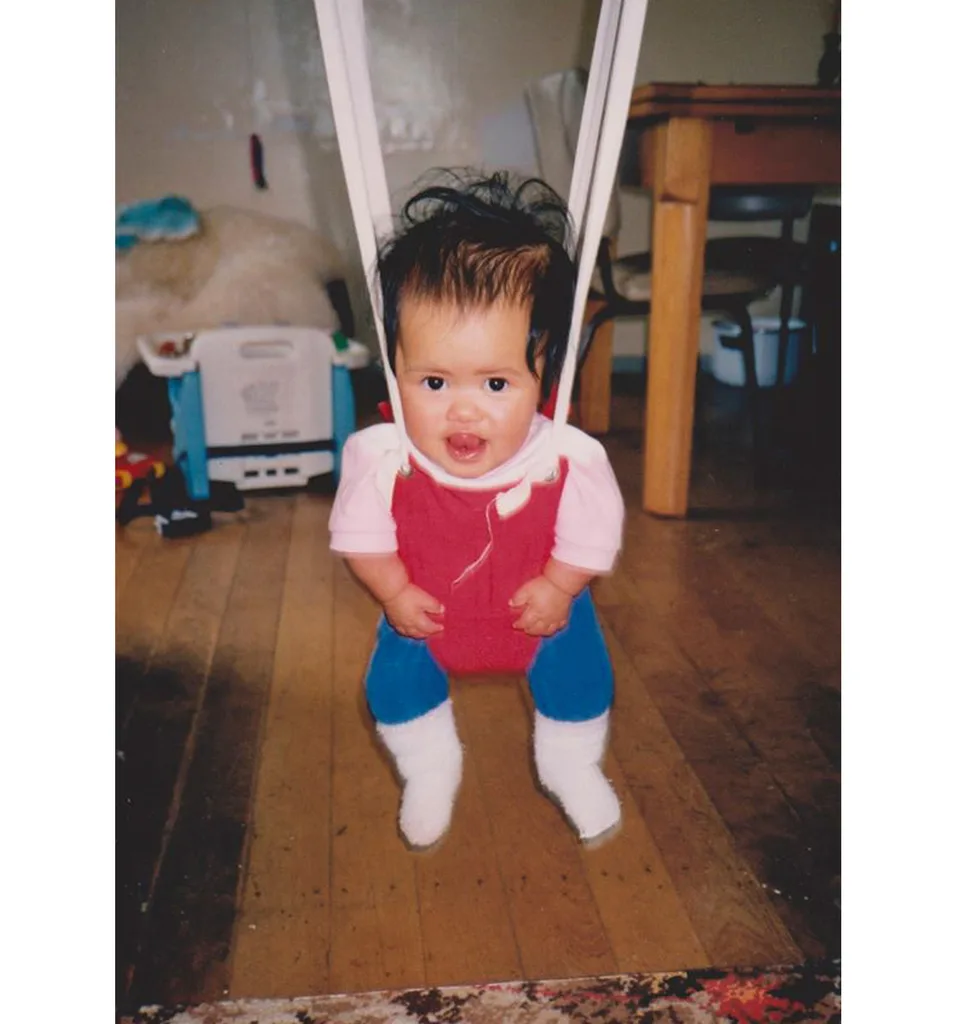
Getting a bouncing start at 11 months.
Ebony, who is Ngati Ranginui and grew up in Tauranga, says she wasn’t allowed to feel sorry for herself as a child and was never bullied. “I had a lot of friends and loved to socialise,” she tells. “Plus, I had heaps of cousins in Tauranga and they always had my back!”
Although she grew up in a whanau of little people, Ebony has always been involved with Little People of NZ (LPNZ), a support and welfare organisation with a membership of more than 100.
Since going public with her video last year, Ebony has fielded phone calls and messages from average-sized couples that have babies with dwarfism. “They want to know what it was like for me growing up and what advice I can offer. I always just say, ‘Don’t worry. Take that baby home and love it,’” she tells.
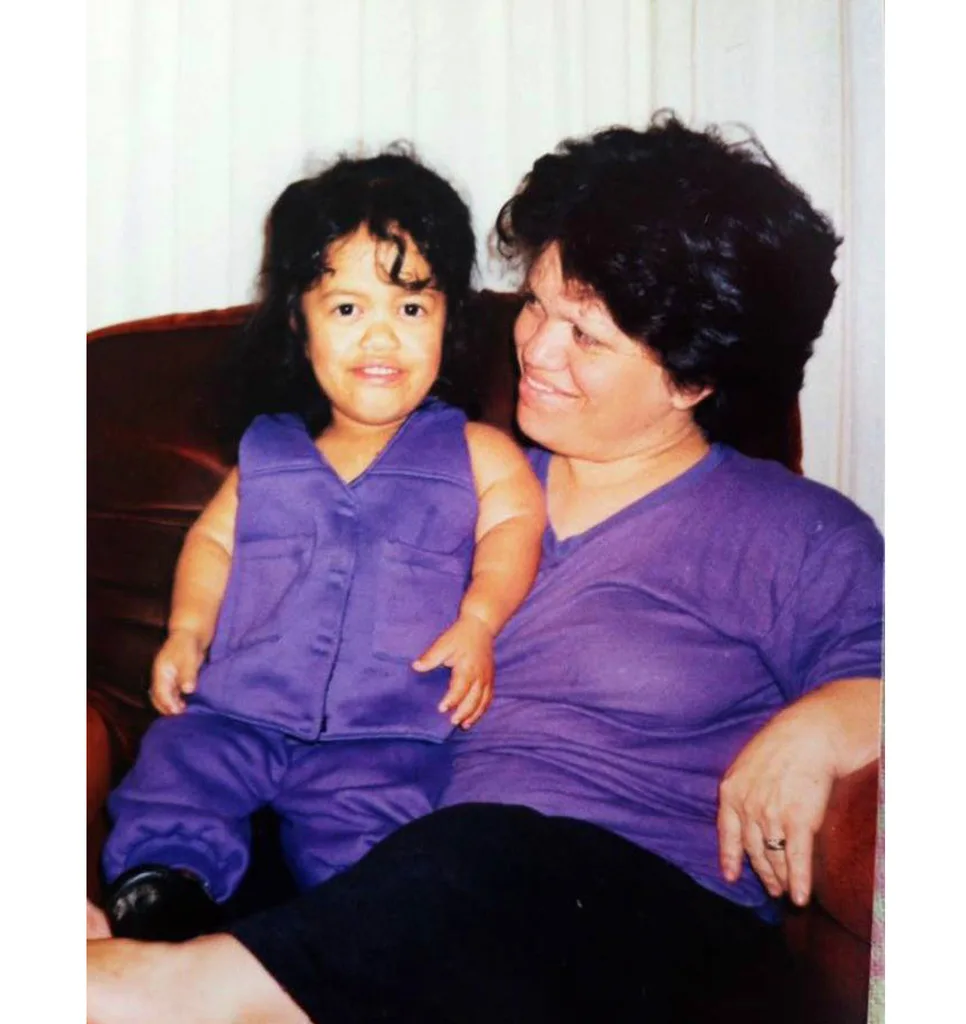
Doting mum Donna (left with Ebony aged five) raised her girl to be independent. “She got me ready for the real world,” she says.
In February this year, Ebony met her partner George Sinclair, 26, at a CCS Disability Action conference for emerging youth leaders. They share similar tastes in music and food, and are passionate about working with people with disabilities.
“When I met Ebony, I was blown away by her strength and courage,” remembers George, who has cerebral palsy and has been in a wheelchair all his life.
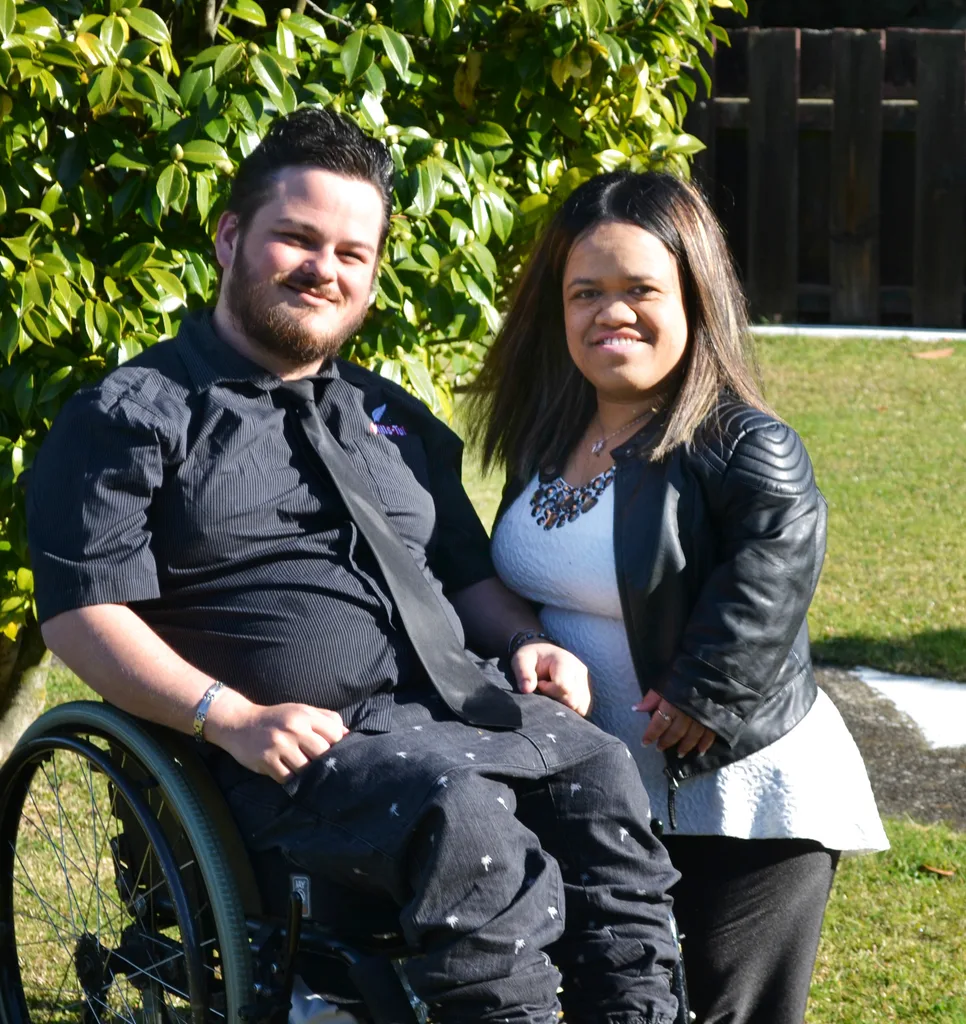
Ebony and her boyfriend George met at a conference for youth leaders.
The couple are used to attracting attention in Rotorua, but they say it doesn’t worry them. “We’re a good example of how love comes in different forms,” laughs George.
Adds Ebony, “Some people think we have disabled people in this world so able-bodied people don’t take life for granted. We just try and live a positive life and make the most of every day.”

